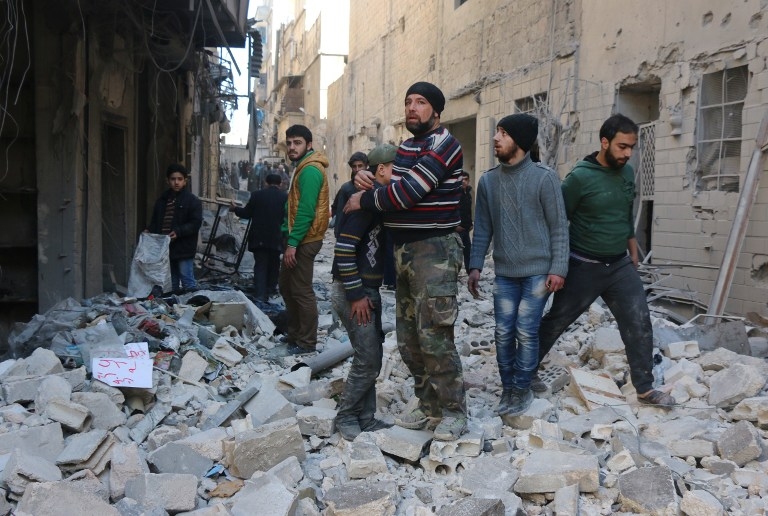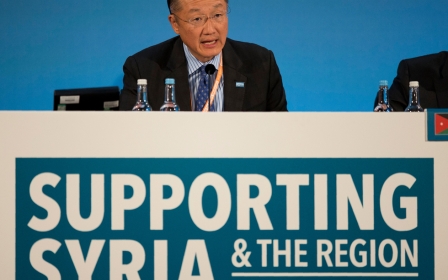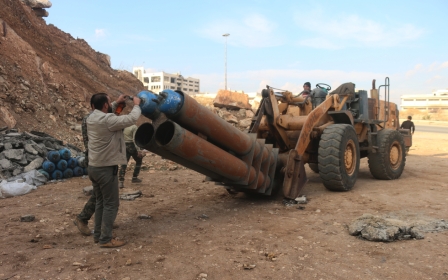Saudi ready to send ground troops to fight IS in Syria: General

Saudi Arabia is ready to join any ground operation the US-led coalition against the Islamic State group in Syria might decide on, a general from the kingdom said on Thursday.
"If there is any willingness in the coalition to go in the ground operation, we will contribute positively in that," Brigadier General Ahmed al-Assiri told AFP.
US Defence Secretary Ash Carter welcomed the offer, saying increased activity by other countries would make it easier for the United States to accelerate its fight against IS.
"That kind of news is very welcome," he told reporters while on a visit to Nellis Air Force Base in Nevada.
Assiri's comments came as government troops pressed a major Russian-backed offensive around Syria's second city Aleppo, sending tens of thousands of residents fleeing.
Joining US and French outcries, NATO head Jens Stoltenberg said on Friday that Russia's intense air strikes, mostly targeting rebel forces, have undermined efforts to find a political solution to the war.
Washington on Thursday demanded that Russia halt its bombing campaign in support of Assad's government.
If a ground offensive against IS went forward, thousands of Saudi special forces could be deployed, probably in coordination with Turkey with whom Saudi has recently set up a military coordination body, sources told the Guardian.
Since late 2014, Saudi Arabia has been part of a US-led coalition which officially has 65 members and has been bombing the Islamic State Sunni militant group which seized large parts of Syria and Iraq.
Saudi Arabia has thus far only supported rebels against Assad's forces.
Bearing the 'burden'
Carter said in January that several members of the US-led coalition against the Islamic State group in Iraq and Syria are doing "nothing at all" to help destroy the militants.
The US has carried out the bulk of the roughly 9,800 air strikes launched in Iraq and Syria since the summer of 2014.
Saudi Arabia carried out high-profile initial air strikes against the militants in Syria but participation by the kingdom and other Gulf members of the coalition declined when the kingdom began air strikes in Yemen against the Houthis last March.
"We did not stop our operation in Syria in spite of the operation we have in Yemen," Assiri said.
There have been growing calls for the anti-IS intervention to expand to a ground force.
In November, the United Arab Emirates, which also belongs to the US-led coalition carrying out air strikes against IS in Syria and Iraq, said it was ready to commit ground troops against militants in Syria.
According to the state-run WAM news agency, Emirati State Minister for Foreign Affairs Anwar Gargash said the UAE would "participate in any international effort demanding a ground intervention to fight terrorism.
"Regional countries must bear part of the burden" of such an intervention," he said.
The UAE has troops on the ground in Yemen as part of the Saudi-led coalition there.
Gargash also suggested the Saudi-led intervention in Yemen could be "an alternative model" to Western intervention in the region.
Russia launched its own strikes in Syria in late September and Iran has reportedly sent hundreds of troops to support Assad's government.
Reports emerged on Thursday that an Iranian brigadier general, Muhsin Qajarian, who was reportedly advising the Syrian government's military campaign, was killed in fighting in Aleppo, according to the Rudaw news agency.
Critics - including in the West and Sunni Arab Gulf nations - have accused Russia of targeting Syrian rebel fighters as well as militants from IS and al-Nusra Front, the al-Qaeda affiliate.
US senators John McCain and Lindsey Graham have called for 100,000 foreign soldiers, most from Sunni regional states but also including Americans, to fight IS in Syria.
Middle East Eye propose une couverture et une analyse indépendantes et incomparables du Moyen-Orient, de l’Afrique du Nord et d’autres régions du monde. Pour en savoir plus sur la reprise de ce contenu et les frais qui s’appliquent, veuillez remplir ce formulaire [en anglais]. Pour en savoir plus sur MEE, cliquez ici [en anglais].




